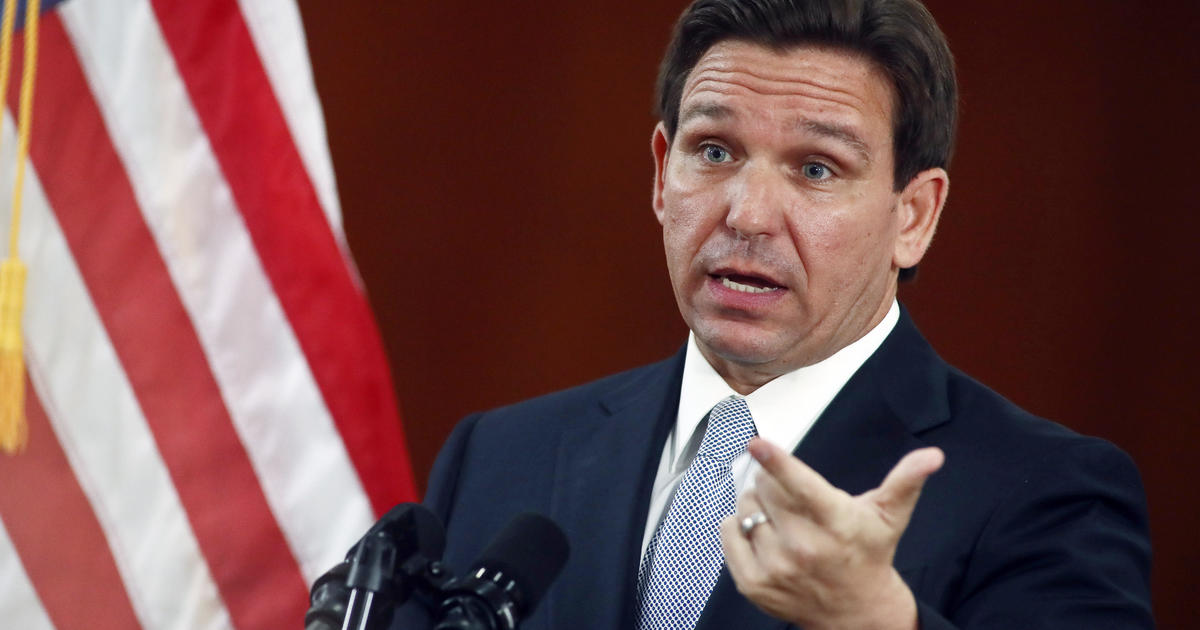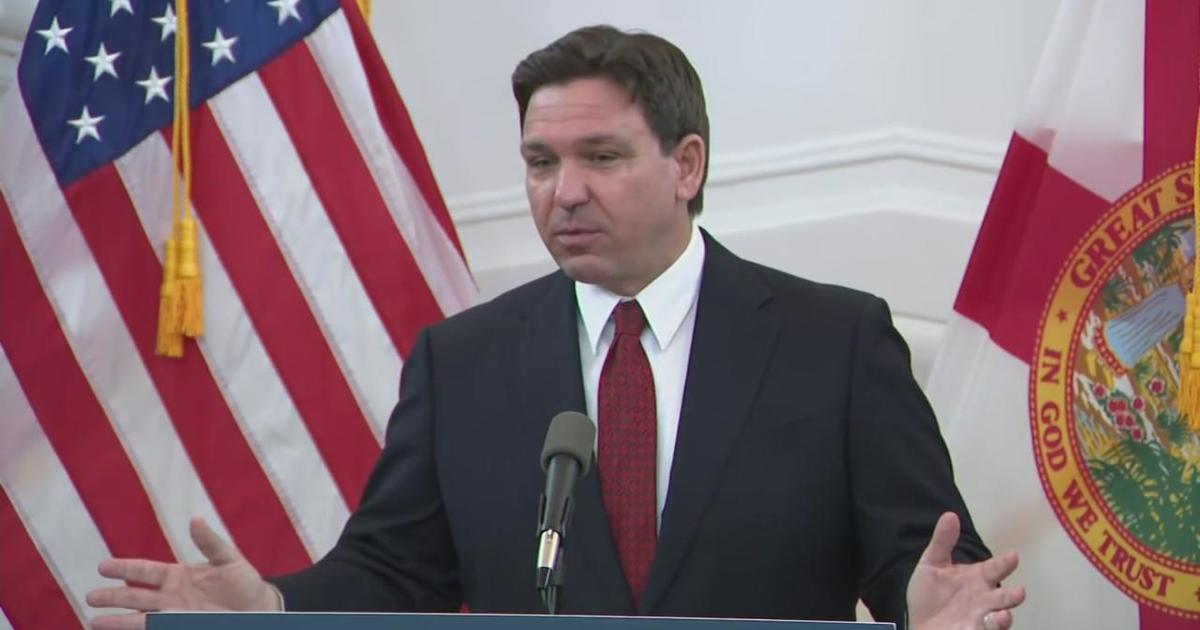Parental rights bill has brought change, fear to South Florida's classrooms, some educators say
MIAMI -- Florida teachers are faced with new standards when it comes to what they are allowed to say and teach under the Parental Rights in Education bill, which is viewed by many educators as the catalyst for many of classroom changes.
Teacher Katrina Whittaker told CBS News Miami that being an educator has never been more challenging.
"Scared. I'm scared, my colleagues are scared," said Whittaker, a teacher at Seagull Alternative High School. "We are scared that we might say the wrong thing. Everything is tied to what you say and what you do in the classroom."
She said helping students who are at risk receive their high school diploma is her calling but she says the Parental Rights in Education measure has created a lot of confusion among educators.
"Walking in fear and you're working in fear," Whittaker said. "You're working in fear because you don't want to say the wrong thing because of these new standards they have created."
In part, the Parental Rights in Education "reinforces a parent's fundamental right to make decisions regarding the care and upbringing of his or her child in the public school setting."
Karla Hernandez-Mats, president of United Teachers of Dade, told CBS News Miami the wording in the bill is too vague.
"We know that a few months ago, there was a parent, through self-admission, that said that she challenged the poem of Amanda Gorman and some other books at one of our public schools. And by self-admission she said she never read the book. She misquoted who wrote it, and she was able to challenge it to the extent the Miami-Dade County schools removed that book from the elementary library and placed it only so secondary students had access to it," Hernandez-Mats said. "I think there is a problem when one parent can make a decision of what curriculum and what access to education the rest of the kids are going to have."
Some teachers told CBS News Miami that another contentious point of the bill is the recent expansion of the bill that prohibits classroom instruction on sexual orientation or gender identity through high school.
Anna Fusco, president of the Broward Teachers Union, said many educators are concerned about something they say getting misinterpreted.
"When you are communicating it's, 'Did I hear it right?'" she said. "Or unfortunately people put in false allegations. Or they say, they made me feel this way or I took it this way. That's the biggest piece, can it come back against me? Will someone do something at the Department of Education, will my certificate be affected?"
Whether parents agree or disagree with the Parental Rights in Education bill and the follow-up guidelines in place, teachers are now required to follow the new standards.
What are the solutions to make this school year go as smooth as possible for educators, parents and students?
Broward Superintendent Dr. Peter Licata says if teachers have any questions about standards or guidelines there is a procedure in place.
"If there are any questions, a teacher can go to a principal," he said. "They had some professional development in leadership week. It's very clear. But one of the biggest things we've asked them is that if there's questions, call us. Don't make a decision out there that you are not sure of. I always say catastrophic decisions are made in isolation. There is a lot of people here who know a lot."
Both the Broward and Miami-Dade Teachers Union presidents told CBS News Miami that parents with a concern or a question about something in the classroom should first reach out to their child's teacher directly.
They say most issues can be resolved at that level.
"If a parent is concerned we want them to talk to us," Hernandez-Mats said. "We want them to tell us what those concerns are."
Katrina Whittaker told CBS News Miami after 35 years in education she feels it's time for a new chapter.
"I think this is going to be my last year of teaching," she said. "I'm going to give it up. I want to keep my pension and I don't want to be worried if I say the wrong thing I lose my pension because I've been working for a lot of years for that pension. So yes, I think this is going to be my last year."
She says no matter what, she will continue to help at-risk youth but it will likely be in a role outside of the classroom.




